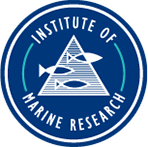First regional training course on marine taxonomy and species identification took place in Southeast Asia
For the first time, a regional training course on basic taxonomy and identification of marine species and macroinvertebrates was organized by the EAF-Nansen Programme from 15 to 26 July 2019 at the Directorate of Fisheries in Yangon, Myanmar.
Twenty-three participants from Myanmar, Thailand and Sri Lanka attended the workshop ran by FAO's Peter Psomadakis (course leader and principal lecturer,) and Deborah Catena (lecturer and lab assistant), supported by staff from FAO Myanmar, together with the regional Directorate of Fisheries. A similar training, but on a national level, was organized by FAO Bangladesh from 16 to 27 June 2019 in Chottagram, gathering additional twenty-three participants.
 |
|
Participants of the first regional training course on marine taxonomy and species identification |
Taxonomy courses are an innovative component of the EAF-Nansen Programme, an initiative led by the FAO, in close collaboration with the Norwegian Institute of Marine Research (IMR), and funded by the Norwegian Agency for Development Cooperation (NORAD). The Programme aims at strengthening knowledge on marine resources and biodiversity in developing countries, namely in Africa and Southeast Asia.
"Correct identification of marine species is essential for collecting information on catches and, more broadly, it is required in various aspects of biodiversity, fishery research and management," explained Peter Psomadakis, the course leader. "Integrating information on biodiversity with knowledge on fisheries is a useful component of the Ecosystem Approach to Fisheries (EAF), that supports capacity development of fishery research and management," added Psomadakis.
Over a 10 - day course was designed to improve skills of scientists and fishery data collectors by teaching the participants how to correctly identify marine species of interest to the region's fisheries in a wider EAF context.
 |
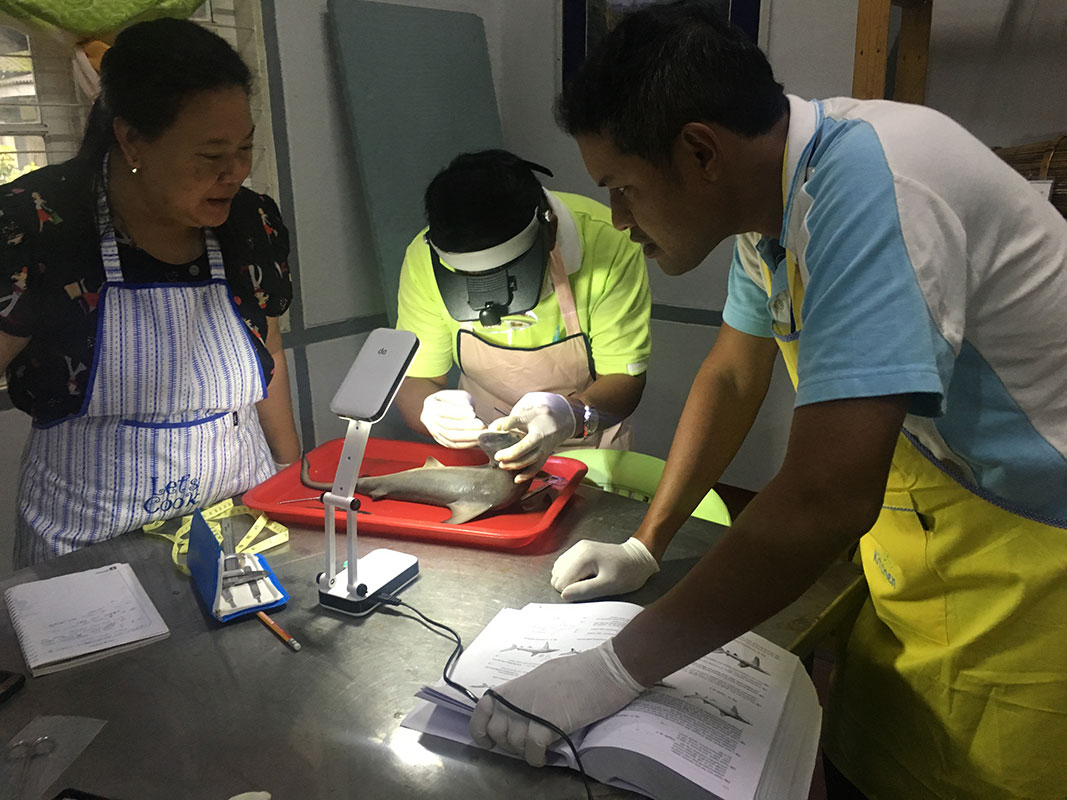 |
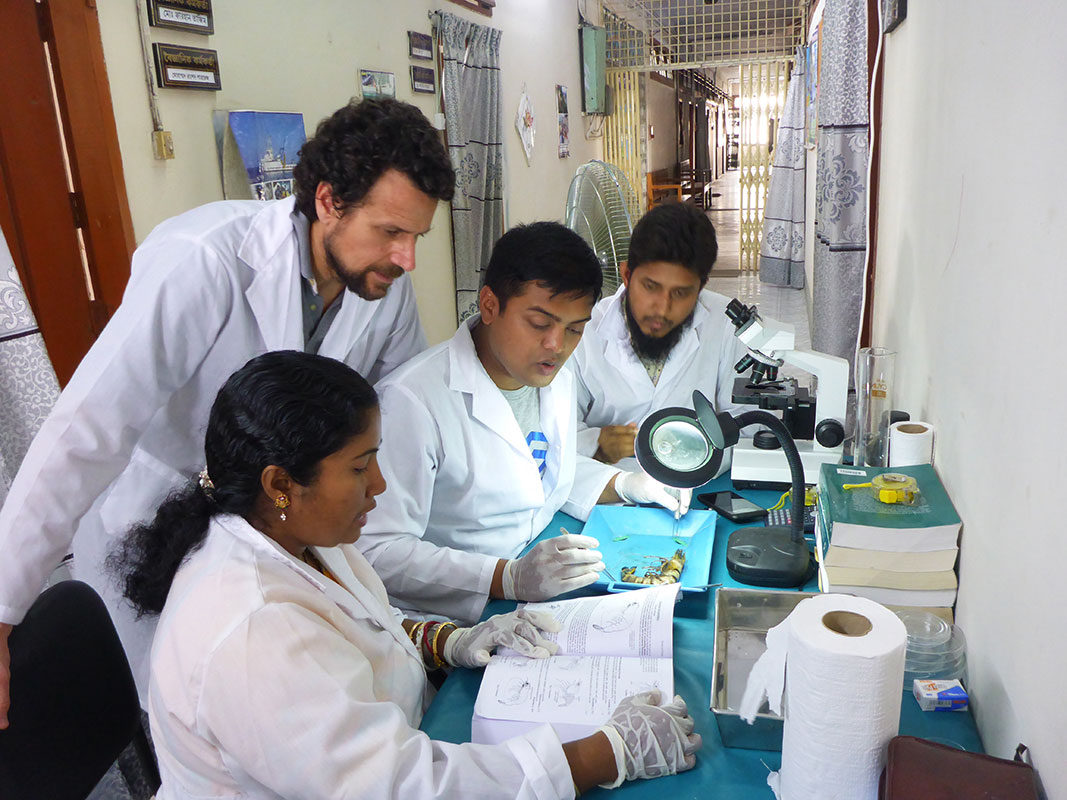 |
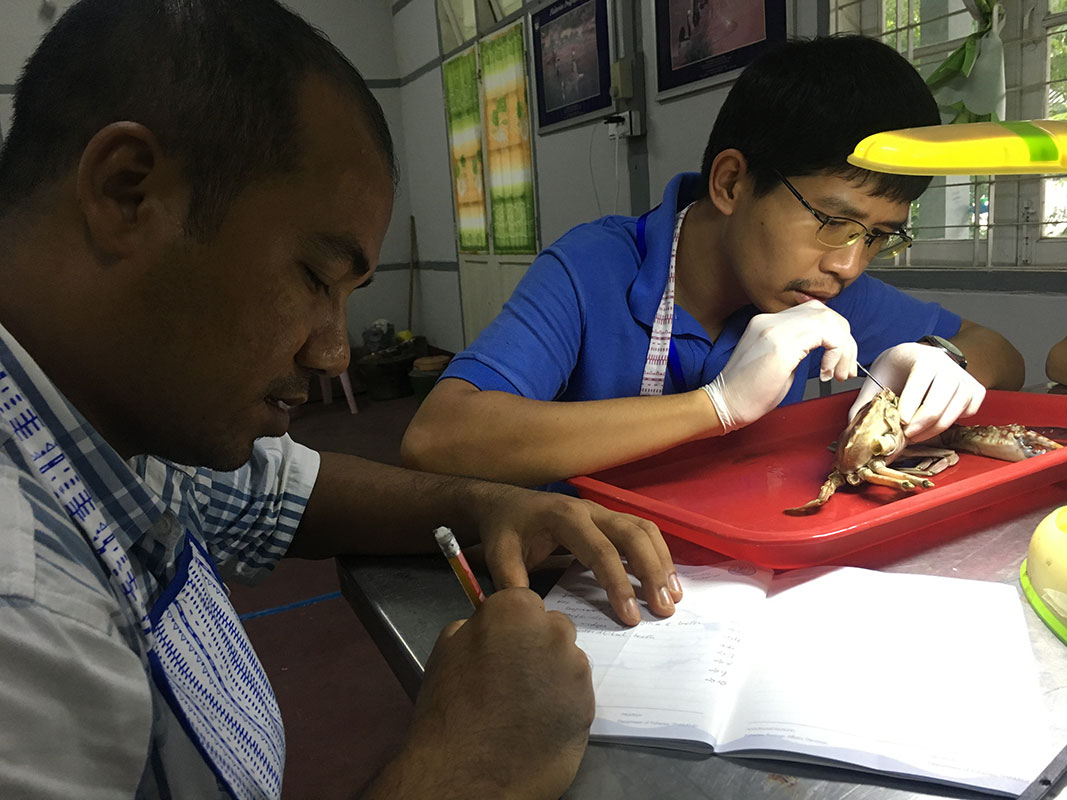 |
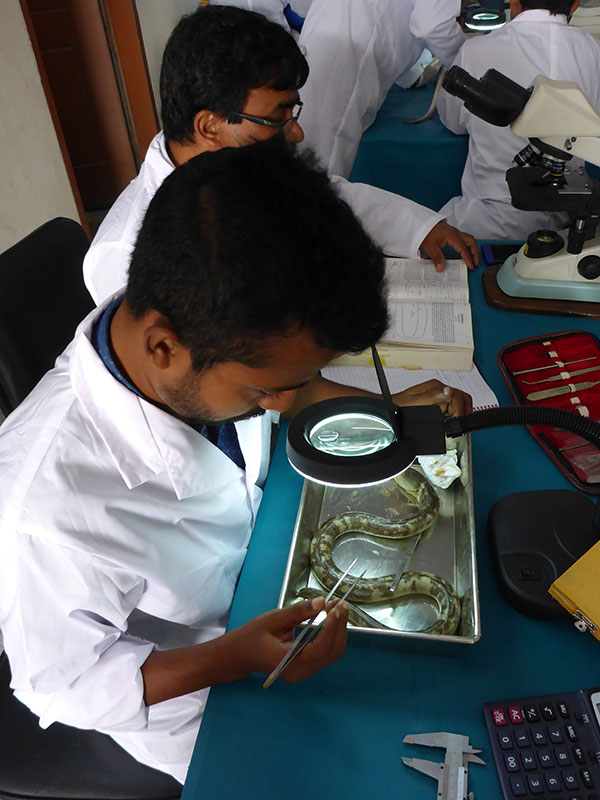 |
|
|
Work in the laboratory on fish identification © FAO |
|
Understanding the adequate procedures to identify marine fish and macroinvertebrates constitutes a basis for improvement of current scientific knowledge, taking into account the expanse of marine waters of the region, the level of exploitation of fisheries resources, as well as the impacts of human activities on fisheries, including climate change and pollution. In this context, marine species identification will contribute to a more accurate research, which in turn can help improve fisheries management in the Bay of Bengal.
The course was comprised of theoretical lectures (in English) and followed by practical workshops in the lab, aimed at teaching the participants to use a step-by-step process of species identification. Additionally, emphasis was put on methods used for labelling, preserving and documenting the animals. The lab sessions were time consuming, but forged an essential and interactive link between the trainers and the participants.
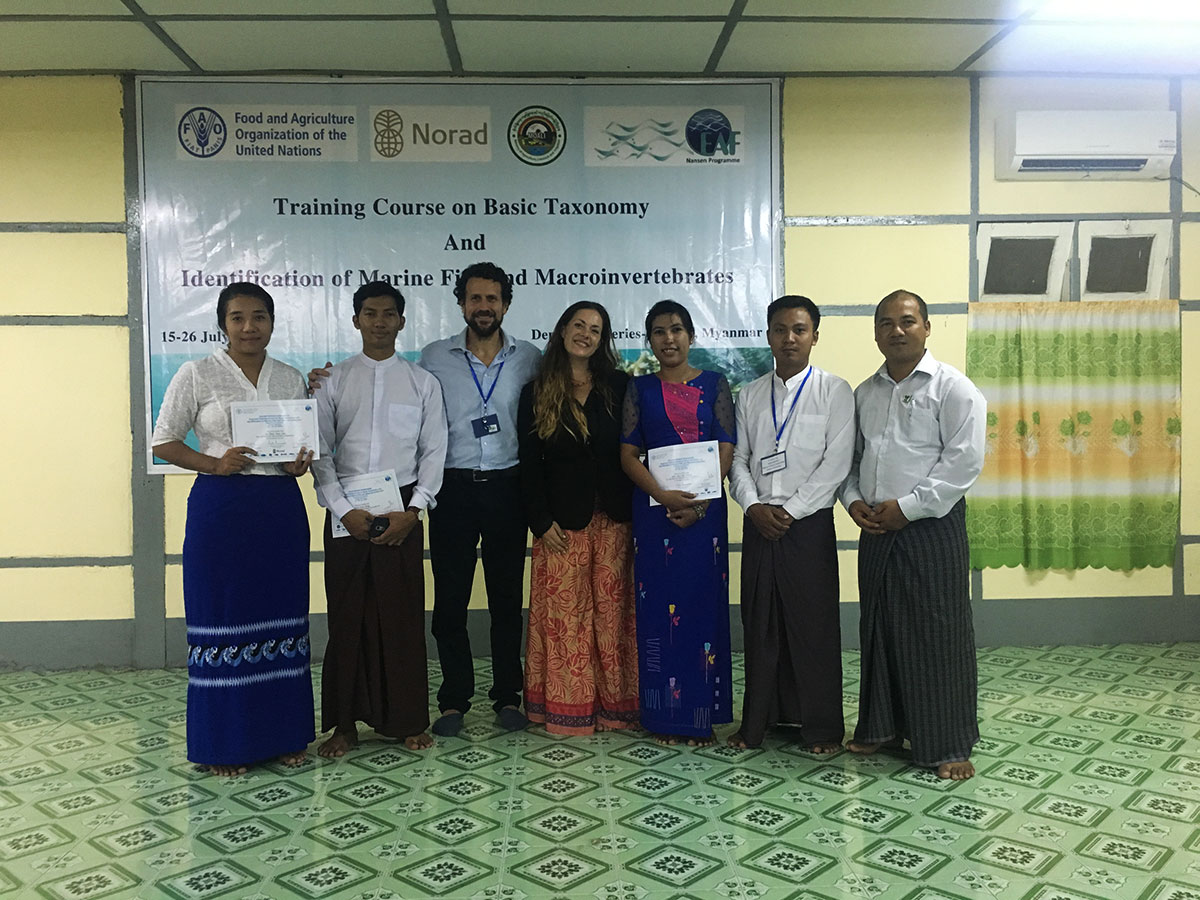 |
|
Closing ceremony of the training © FAO |
In summary, the training course proved to be successful in both, Bangladesh and in Myanmar. This was clearly demonstrated by an active engagement along with positive feedback in the training evaluation forms. Throughout the course, the participants underlined the importance of such an initiative for their work and professional career development, and some expressed interest in organizing similar trainings for fishery observers in their respective countries, and/or present ideas for projects for the development of FAO national species identification guides. According to the organizers, these courses are of high relevance and contribute to the development of basic taxonomic skills for fishery inspectors, fishery biologists and marine researchers of the Bay of Bengal region. Therefore, they should be expanded in the future, in order to further strengthen regional scientific capacities.
The Director General of the Department of Fisheries, Mr U Khin Maung Maw, the FAO Representative in Myanmar, Ms Xiaojie Fan, and the Norwegian Ambassador in Myanmar, Ms Tone Tinnes, attended the closing ceremony of the course. They all stressed the great significance for the Department of Fisheries of Myanmar to host such a high-level event, and the importance of these training courses to improve the current knowledge of fisheries experts, crucial for effective future management of fisheries in the region. Mr Psomadakis and Ms Catena thanked on behalf of FAO the Director General and his staff for providing excellent assistance, and expressed hope for continued future collaboration.


